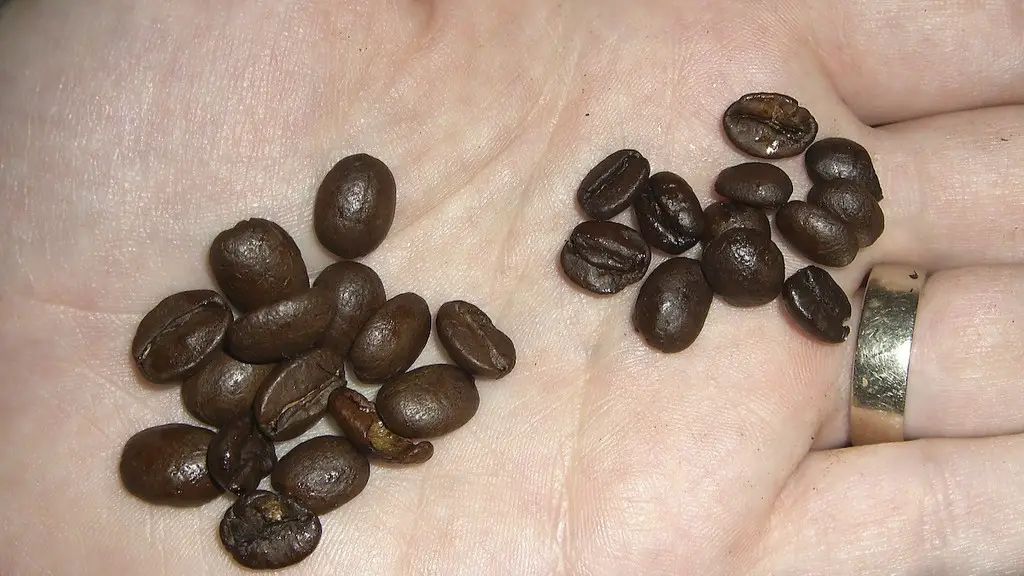Overview
Coffee is one of the most popular beverages worldwide, enjoyed by hundreds of millions of people each day. Their reasons for drinking range from the social aspects to its good taste, and for some, the caffeine buzz. Coffee contains caffeine, a stimulant drug, which has associated health benefits. But for people with diabetes, it may be a riskier beverage. The presence of sugar in coffee can increase blood glucose levels, which can be particularly problematic for people with diabetes. But there is good news – diabetics can still drink coffee without sugar, making it a safe and enjoyable part of their diet.
Sugar and Diabetes
Diabetes is a largely preventable disease, caused by a combination of lifestyle choices, genes, and poor diets. It is characterized by high levels of glucose in the blood, usually caused by the body’s inability to produce enough insulin or having an insufficient ability to absorb glucose in the cells. Hyperglycemia, also known as high blood sugar, is a common symptom reported by diabetics. Eating food and drinks high in sugar can worsen this condition. The American Diabetes Association recommends limiting added sugars to no more than 5 to 10 percent of total daily caloric intake.
However, it can be difficult to know how much sugar is in a cup of coffee as it is not always listed in the label or through other informational sources. That’s why it’s important for people with diabetes to seek out black or unsweetened coffee – and avoid added sugars.
Health Benefits of Coffee
Coffee has several potential health benefits for people with diabetes. Studies have linked drinking moderate amounts of coffee to a lower risk of developing type 2 diabetes. Another study found that those who consume five or more cups of coffee a day, who have type 2 diabetes, were at a lower risk of death from the disease.
In addition to this, research has found that caffeine intake can temporarily reduce blood glucose levels, providing a potential benefit to diabetics. Caffeine has also been found to improve memory, enhance focus, and boost metabolism, all of which can be helpful for people with diabetes.
Dangers of Too Much Coffee
Drinking too much coffee can lead to dehydration and other issues, such as headaches. While it is not recommended to over-consume coffee, those with diabetes should take extra caution to avoid doing so. Additionally, it is important for diabetics to watch for signs of hypoglycemia, or low blood sugar, such as shakiness and confusion, which can happen if your blood sugar drops too low from drinking coffee.
Conclusion
To sum up, coffee is a beneficial beverage for people with diabetes, as long as it is consumed in moderation and without added sugar. Coffee can provide many health benefits for those with diabetes, including lowering the risk for type 2 diabetes and improving glucose control. And despite the limited risks, diabetics can still enjoy coffee without any added sugar.
Tips for Making Coffee without Sugar
For diabetics looking to enjoy coffee without sugar, it is important to find coffee that is labeled ‘unsweetened,’ ‘sugar-free,’ or ‘no added sugar.’ The key is to find coffee that is brewed or steeped with no added sugars. There are several types of coffee on the market that meet these criteria. Additionally, most coffee shops will offer coffee without added sugars.
For those who still desire a little sweetness in their coffee, diabetics can add natural sweeteners, such as honey or stevia, to coffee without the risk of high spikes in glucose levels. Furthermore, adding a splash of cream or unsweetened almond milk will not only add a delightful taste, but will also help to reduce coffee’s acidic nature. In doing so, this will reduce the tendency for coffee to cause heartburn, another potential problem in people with diabetes.
Safety Tips to Follow
Lastly, it’s important for diabetics to be mindful of the potential risks that can come with drinking coffee without sugar. As a general rule, it is best to drink coffee in moderation and to monitor blood sugar levels to ensure that drink consumption does not increase risk of high glucose. Additionally, it is best to avoid drinks containing caffeine in the evening or late afternoon, to avoid creating a milder form of caffeine addiction. That being said, for those with diabetes, drinking coffee without sugar is a safe and enjoyable choice when monitored and consumed responsibly.
Pros and Cons of Coffee for Diabetics
The primary benefit of drinking unsweetened coffee is the reduction of sugar in the diet. Sugar, even in small amounts, can create spikes in glucose levels, which can lead to further health issues. Drinking coffee without sugar lowers the risk of this happening. Additionally, the potential health benefits of coffee, such as improved glucose control, may help diabetics in the long run.
However, there are potential risks to be aware of when drinking coffee without sugar. Caffeine can cause dehydration and headaches, so moderating the intake of coffee is important. Additionally, some studies have found that caffeine can raise blood pressure, a potentially dangerous risk factor for those with diabetes.
Myths Surrounding Coffee Without Sugar
One of the most commonly heard myths about drinking coffee without sugar for diabetics is that it can help diabetics regulate their blood sugar levels. This is not true – however, drinking coffee without sugar can lower the risk of spikes in blood sugar levels. Additionally, some people may believe that all coffee is bad for diabetics, but in reality, as long as it is unsweetened and consumed in moderation, it can be a safe and enjoyable part of a diabetic’s diet.
Barriers to Enjoying Coffee Without Sugar
The main challenge of drinking coffee without sugar for diabetics is finding coffee that is labeled ‘unsweetened’ or ‘no added sugar.’ Unfortunately, many popular brands of coffee still contain sugar, making it difficult to find coffee without it. Additionally, some diabetics may be wary of trying coffee without sugar due to potential risks of strong caffeine and dehydration, since they may not be aware that these risks can be managed if coffee is consumed responsibly.
Weighing the Benefits and Risks
When it comes to drinking coffee without sugar for diabetics, it is important to weigh the potential benefits and risks for the individual. There are potential health risks, such as headache and dehydration, but there are also potential benefits, such as improved memory and reduced risk of type 2 diabetes. Ultimately, it is up to the individual to determine if the risks are worth the possible benefits.



